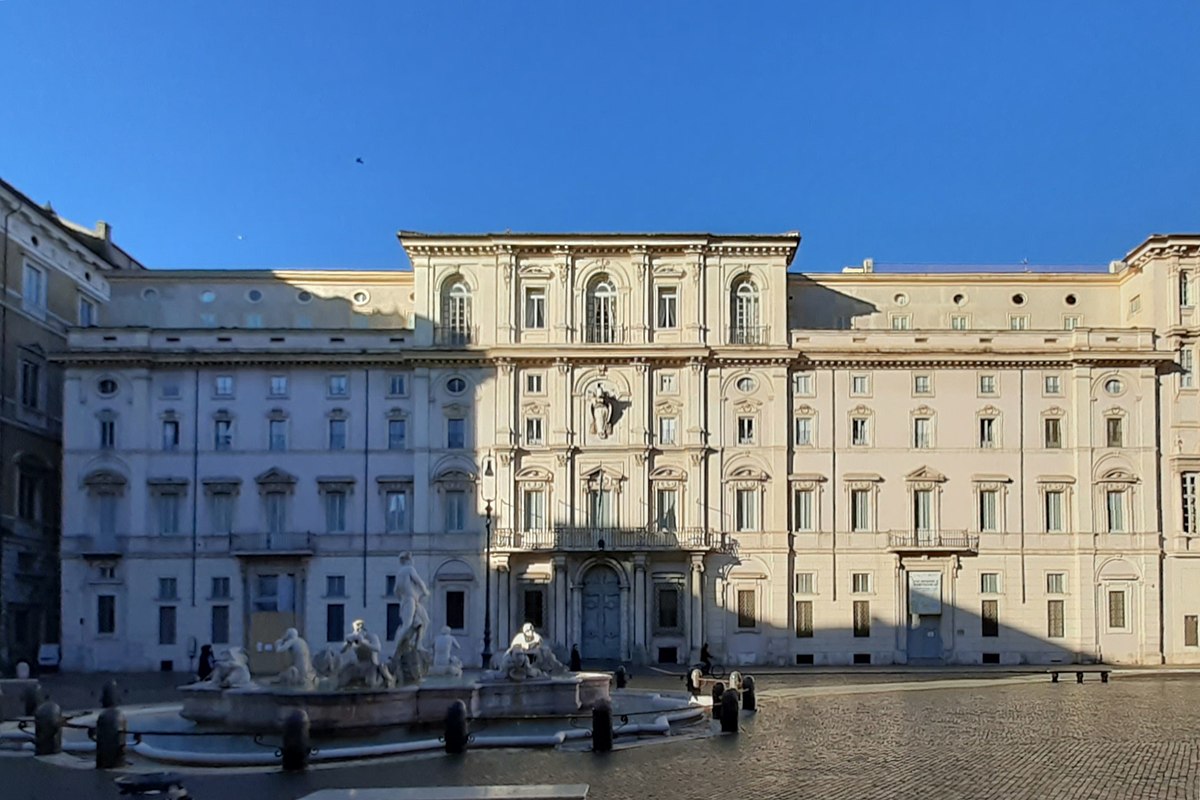

Erected on the western elevation of Piazza Navona (Roma), the College represents the latest constructive intervention in the program undertaken by the Pamphilj family.
Located on the right side of the Church of Sant’Agnese in Agone, in the area where Palazzo Ornano previously stood, the building owes its name to Pope Innocent X (1644-1655).

The project was entrusted to Francesco Borromini, who began work in 1654, planning a square plan structure.
The work was particularly long: Palazzo Ornano was destroyed and the College had not yet been completed in 1666, as shown in the will drawn up by Camillo Pamphilj, who asked his son Giambattista to complete it. The latter, flanked by his mother Olimpia Aldobrandini, entrusted the decoration of the main hall of the library to Francesco Cozza, a Calabrian painter of the Domenichino school, who worked there from 1667 to 1672.

The Pamphilj family played a decisive role in the transformation of the square, acquiring several buildings that faced the west side and unifying them in the monumental complex that includes the Pamphilj palace, the church of Sant’Agnese in Agone and, in fact, the Collegio Innocenziano.

The idea of ??creating the so-called "Insula Pamphilj" was born in 1470 with Antonio, a nobleman from Gubbio who became tax attorney at the Apostolic Chamber, who took up residence in Piazza di Parione (today Piazza Pasquino). Over time, he expanded his properties, whose rapid and decisive expansion will take place with John the Baptist, the cardinal who will rise to the papal throne with the name of Innocenzo.
The College was intended to house the clergy of the church of Sant’Agnese and the children of employees of the Pamphilj who were on their way to ecclesiastical careers.

Now it is the seat of the Embassy of Brazil, with guided tours and exhibitions.
Pamphilj Palace - Embassy of Brazil
Address: Piazza Navona, 14
Phone: 06 68398 285
Site:
http://www.ambasciatadelbrasile.it/palacio/visita_guidata.aspLocation inserted by
CHO.earth